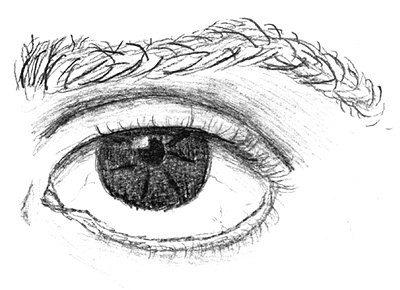All Nonfiction
- Bullying
- Books
- Academic
- Author Interviews
- Celebrity interviews
- College Articles
- College Essays
- Educator of the Year
- Heroes
- Interviews
- Memoir
- Personal Experience
- Sports
- Travel & Culture
All Opinions
- Bullying
- Current Events / Politics
- Discrimination
- Drugs / Alcohol / Smoking
- Entertainment / Celebrities
- Environment
- Love / Relationships
- Movies / Music / TV
- Pop Culture / Trends
- School / College
- Social Issues / Civics
- Spirituality / Religion
- Sports / Hobbies
All Hot Topics
- Bullying
- Community Service
- Environment
- Health
- Letters to the Editor
- Pride & Prejudice
- What Matters
- Back
Summer Guide
- Program Links
- Program Reviews
- Back
College Guide
- College Links
- College Reviews
- College Essays
- College Articles
- Back
Unspoken Consensus
Ever wonder where unspoken consensuses come from? We all seem to know the social ones concerning implied 'rules' unconsciously, which is learned in childhood as we observe people's reactions to our actions. It's a human grown-up thing.
I don't even think we are aware of unspoken consensuses if we try to find them. It's more they are already established so they don't register in the mind. Like how you don't go right next to the bathroom stall of a stranger, you go to the 2nd or 3rd away. Or how you don't fidget and move around really awkwardly in public when you're bored. Or you don't impulsively touch someone's hair because it seemed like the right thing to do at the moment and you really, really wanted to.
Don't you just feet like that sometimes? Humans have evolved so they have consciences that they consult whether or not to do a specific action. And you process the possibility through the layers of filtering, moral rules, the law, the outcome of that action, unspoken social consensuses, and numerous others. You can imagine all the junk that didn't get through, all the what ifs. And amazingly, we do this all subconsciously.
We also learn to filter by minimizing, hiding, or deceiving our facial expressions and body language. Again, it's a part of growing up.
And we conform ourselves to these unspoken rules. The raw blob called you gets cookie-cutter-ed, sifted, beaten, and generally refined to an outer you that everyone sees and believes is you. No. You is all the dough. Not only the baked.
It's gone to the extent that you ask for the time to fill the silence and ask what class do we have next just to say something even though you already know. It's ridiculous and kind of scary. I can imagine all the possibilities if we were raw and not-held-back, primitive. More extremes of all sorts. Yes, more crime. But less tedium! Less vaguely contented stasis! More action!
Unfortunately, these consensuses rule us and they are inevitable. Another side-effect of life complicated-ness. One of the contributing factors to all the mundane details no one really cares and won't matter in the end but still take into account nevertheless.
What we could do, though, is recognize when we are about to be governed by unspoken consensuses and do what we originally were going to in spite of it. You could regret a lot less. Or you could regret a lot more.
After all, consciences make us sophisticated and can come in very handy ethically. Yet all the trivial things it prevents you from doing could have been done. Instead of being 10% you, you could be 40% genuine you by letting these things escape the unspoken consensuses. Many times, the reason is because deep down we want to impress everyone and be thought highly of, whether it be the general public, or someone you like, or yourself. It's outrageous that we still want to impress people we don't know and people we don't like, hence why we disagree to dares having to do or say something embarrassing to a stranger. We think, 'They'll think I'm stupid!' It has something to do with pride. If you can give up that person's limited opinion of you, you can give up those limitations.
Make mental list unspoken rules, like Thou shalt keep one's facial expression not stupid at all times and Thou shall speak with the proper inflections. So that you realize and can take control.
It's restraining not being the raw you and it's much more fun and liberating to do whatever in a somewhat reckless manner.
Because believe me, you can care way less what they think.

Similar Articles
JOIN THE DISCUSSION
This article has 0 comments.
